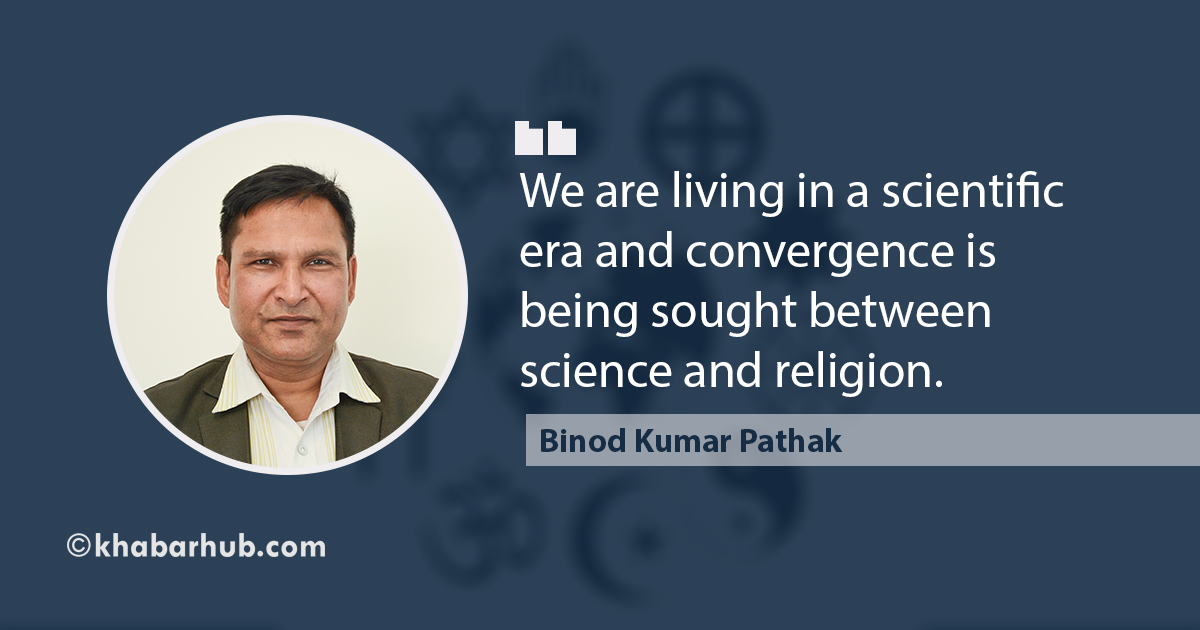For atheists God never exists in the first place, so talking of ‘God’s death’ as Fredrick Nietzsche puts it is more about humanity than divinity. In other words, saying that God is dead and all of us are free and hence responsible for our own life and actions is a march toward achieving ultimate freedom.
Nobody beyond our control and reach is dictating our life and ruling over us as to what to do and what not to do. This is why Jean-Paul Sartre considered life in itself as an end in itself — the ultimate achievement and rest of the things like what to make of this life and how to live it (with or without meaning) is all our construct. Existence precedes essence, Sartre declares.
Sartre’s primary idea that people, as humans, are ‘condemned to be free’ is set in a negative context as if humans are not competent to handle their freedom. This theory relies upon his position that there is no creator and we ourselves are responsible for what to make out of our own life.
Sartre uses the analogy of paper cutter to make his point and says that we are not designed and cut into different forms and sizes by anyone as paper cutter does with a piece of paper. There is no plan in advance before we are born here and grow up into an adult. It means that there is no essence decided in advance.
Human beings have no essence before their existence because there is no Creator or God. Thus: “existence precedes essence”. It is perfectly fine. Isn’t it? Let us work out to prove the essence in our life though life in itself is the biggest essence if one reads into it. “We are left alone, without excuse.” “We can act without being determined by our past which is always separated from us.”
These are the statements asserting ultimate freedom without being confined into any dogma or theology and has the power to transform an individual to achieve the highest what the existence that is human life can ever offer. So, I don’t understand why Jean-Paul Sartre needed to say that humans are “condemned to be free”.
We are living in a scientific era and convergence is being sought between science and religion. As science apart from being too obsessed with objects and outside world has lately moved towards the study of energy centers within the body and its parallel in the universe. How a person as a microcosm through religious disciplines align the individual system with the universe (macrocosm) to divulge many secrets which science takes centuries to arrive at.
Albert Einstein, the most celebrated physicist of the 19th century once said, ”We have slowed down sound and light waves, a walking bundle of frequencies tuned into the cosmos. We are souls dressed up in sacred biochemical garments and our bodies are the instruments through which our souls play their music.”
Bertrand Russell, a British philosopher, and mathematician of the 20th century is considered one of the founders of analytic philosophy. Analytical philosophy is a method of approaching philosophical problems through analysis of the terms expressed through words.
It emphasizes more on analysis which breaks down words into smaller parts to derive meaning out of them and does not entertain any kind of speculation. Hence, analytical philosophy rejects speculative philosophy. There is no surprise when Bertrand Russell says that religion is something left over from the infancy of our intelligence, it will fade away as we adopt reason and science as our guidelines.
Obviously, positivists like Russell does not entertain anything which is not expressed or expressible in words and numbers, revelations and comprehension that takes place in silence and not involving thoughts and words are simply to be treated as the infancy of our intelligence.
Emotional prowess termed as absorption within, devotion and prayer considered to be essential attributes of a religious person is all farce if ilk of Friedrich Nietzsche, Bertrand Russell, Ludwig Wittgenstein, and Jean Paul Sartre are to be believed.
Stephen Hawking, celebrated physicist of 21st century used the reference of God in his seminal book A Brief History of Time. He wrote that if physicists could find a “theory of everything” – that is, a cohesive explanation for how the universe works – they would glimpse “the mind of God.” Though a self-proclaimed atheist, Hawking later clarified that he wasn’t referring to a creator in the traditional sense.
He said, ”God is the name people give to the reason we are here. But I think that reason is the laws of physics rather than someone with whom one can have a personal relationship. An impersonal God.” “Spontaneous creation is the reason there is something rather than nothing, why the universe exists, why we exist,” he wrote in The Grand Design.
“It is not necessary to invoke God to light the blue touch paper and set the universe going.” Though Hawking rejected the conventional notion of God or a creator, he couldn’t reject that the universe and life have no meaning at all as many atheists do.
Thus, there are some who call religion a super-science but for average people who never strive for higher consciousness, religion is another name of magic and superstition. And, we see all around us even in the 21st century in every part of the world spread of disharmony and superstitious beliefs followed by strangely stupid acts.
All this is happening in the name of religion and being supported by those who claim to minister the activities. Priests, shamans, clergy, and Mullas are found to have been involved at one or many occasions in promoting superstitious beliefs and disharmony in the society and local community in which they live. Superstition is an excessively credulous belief in and reverence for the supernatural. Most of the times, it arises from ignorance, a misunderstanding of science or law of causality about the things happening to (or around) us and about the persons who we meet or live with us.
(To be continued…)
Views expressed in this article are the author’s own and do not necessarily reflect the stance of Khabarhub.









Comment